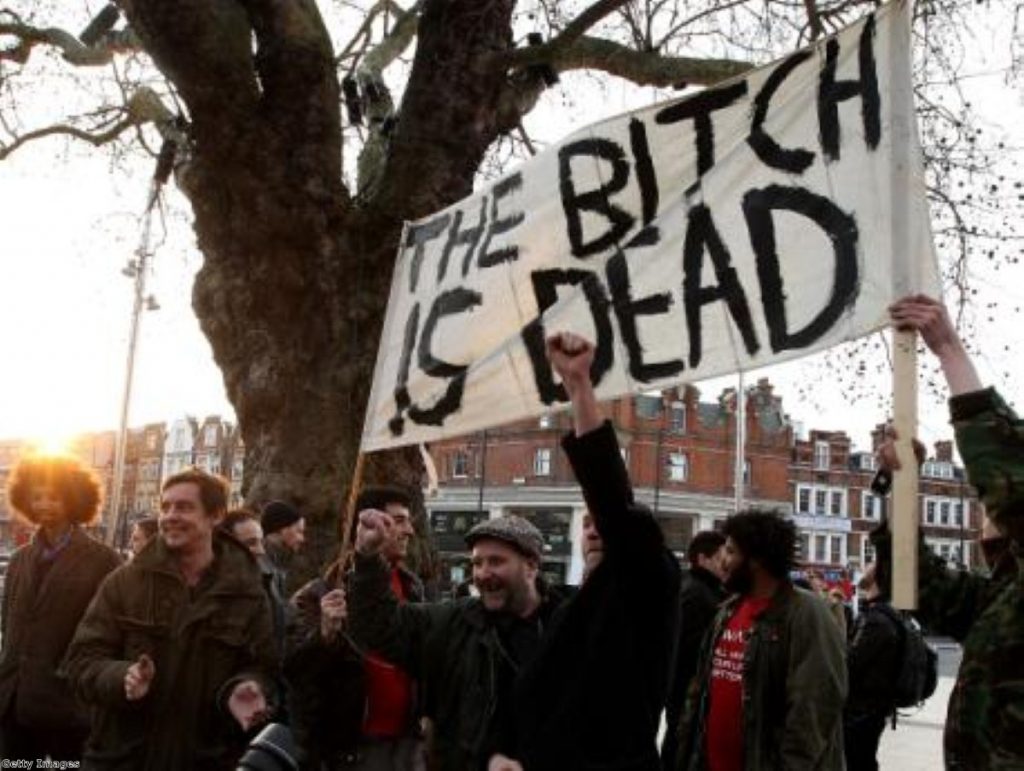A nation divided: Half of Britain parties while the other half mourns
Margaret Thatcher has divided Britain in her death as much as in life, with street parties going ahead while political and business leaders pay tribute to one of the most influential prime ministers of modern times.
More than 300 people gathered in Glasgow's George Square last night, singing choruses of "so long the witch is dead" and "Maggie, Maggie, Maggie – dead, dead, dead."
In Brixton, where fierce riots took place in 1981, hundreds gathered and two were arrested after low-level disorder.
In Trafalgar Square, which was the scene of some of the worst violence during the poll tax riots, people gathered after the news was announced with champagne.


Last night's production of Billy Elliot went ahead, despite including a song with the lyrics: "we celebrate today because it's one day closer to [Thatcher’s] death".
The production team took several hours to decide whether they would go ahead, however, and producers are apparently considering exercising the section.
The production of The Audience, which includes a critical take on the former prime minister, went ahead but its writer addressed the audience as a mark of respect beforehand.
The mood was very different down the road at the Ritz, where Thatcher's body was removed in preparation for next week's funeral.
Flowers were laid in tribute at her home in Belgravia, central London.
The ceremonial funeral – one step below a state funeral – will take place at St Paul's Cathedral.
Even that is a source of controversy, with at least one newspaper demanding the ceremony is turned into a state one, although she is understood to have personally rejected that option. Even the Queen Mother was not given a state funeral when she died.
Members of parliament will return to the Commons tomorrow to debate the legacy of Thatcher.
Writing in the Times, George Osborne admitted her influence was "impossible to live up to" for other Tory leaders.
"Whatever we try to achieve and whatever parliamentary battles we fight, all seem to shrink in size alongside the struggles and triumphs of Margaret Thatcher," he wrote.
"Successive Conservative leaders have all faced invidious comparisons that are impossible to live up to — sometimes from the very people who were the most strident critics of her early years as leader.
"We do live in her shadow and we should just embrace it."
David Cameron, who has won no general election majorities compared to her three, is in a potentially sensitive position as he tries to celebrate the life of a Tory figure who is far more popular than he is in the party.
Some analysts believe the death of Thatcher could make Tory backbenchers even more rebellious, as they compare her robust leadership with the compromises of the coalition.
Nevertheless, environment secretary Owen Paterson tried to put a more positive spin on the comparison in an article for Conservative Home.
"She left a country holding its own and walking tall. The legacy she leaves our party, our country and the world is a remarkable one. We owe it to her to build on this," he wrote.












